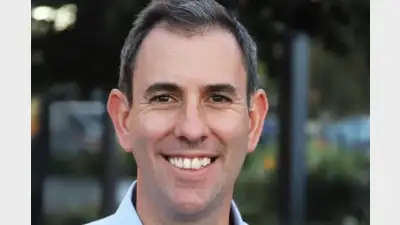Will MySuper deepen the underinsurance crisis?



Underinsurance remains a crucial concern for Australia – and there is a chance that MySuper could make things worse. A Super Review roundtable discussion considered the challenge.
Mike Taylor, managing editor, Super Review: Can I just direct the conversation back to what Mark was talking about, which is the underinsurance issue, which has been an issue for this sector, and for Australia, for most of the past decade.
There's been endless campaigns directed by other organisations which comes to mind about underinsurance, and I do really wonder whether MySuper is going to kind of highlight that, and whether the Government does need to do something within whatever it's going to do on MySuper to ensure that doesn't occur. Is there a view on that?
Paul Schroder, general manager, AustralianSuper: I've got a view on that. The issue is a bit wider than that I think Mike. It is that there is underinsurance, there's overinsurance, and there's wrong insurance.
The superannuation tribunal that I sit on, a lot of the disputes about the distributions of death benefits are related to young people who have died, have got insurance, didn't need it, and their parents or their sisters and brothers are fighting over the distribution of this insured amount.
So there was a person who didn't need life insurance, as was raised I think by John, they probably needed disability insurance, and maybe they had it, maybe they didn't have it.
There's also the issue that Marc raised of underinsurance, of people who do have family commitments, and the one-size-fits-all insurance arrangement that would presumably apply on a MySuper product is highly appropriate.
I disagree with Marc's comment that there will be a lot of opting out from insurance because the legislation, it appears, will enable people to do that.
What this is directed at is lethargy, and people just don't do anything. They don't make decisions; they don't opt in, or opt out. So just based on that history, I think a lot of people won't opt out.
John Quessy, trustee, NGS Super: As I understand it, the opt out part is for death insurance, and MySuper vehicles can offer a range of others, but they would be on the basis of opt in. I find it odd that in an effort to simplify things, you have two conflicting arrangements.
I just think the whole thing, the whole report, was a first attempt at a discussion paper. You could excuse a lot of things, but it's supposed to be a final [report], and it's just so bizarre.
Russell Mason, worldwide partner, Mercer: Why are we allowing people to opt out? I take Noel's point, and I've seen it many times over the years: a young 20, 21-year-old tragically dies and it's a windfall gain, to be frank, for the rest of the family.
And that person probably didn't need insurance.
The other extreme I've seen again and again: people in relationships with children who have dependents in the truest sense of the word, die or become disabled, and it's a woefully small amount of money they receive - it's certainly not enough to allow them any dignity.
I would rather us lift the standard, the level of insurance - make it mandatory.
The vast majority of those young people are going to enter into relationships and have children, or develop liabilities, and there's no guarantee that they're then going to say: 'Oh yes. Now I need insurance, let's take out insurance.' So I'd rather overinsure the 20-year-old to ensure the 40-year-old with true dependents is insured.
[And] if [the Cooper Review] is saying the funds must offer death cover, that says to me it's recognised as an important component of superannuation. And then we have this exit clause that says 'but if you don't want it'... Sorry, I think we should make it mandatory.
John Quessy, NGS Super: I don't reckon [the Cooper Review] is being favourably espoused to insurance at all actually. The tone there is 'oh be careful because this [depletes] retirement outcomes'. So that's the tone.
But what you're describing Russell is the proper role for the trustee. The trustee should consider all of those things: the profile of their fund, the likely take. I agree entirely that the idea of opting out, which you can do in our fund, does not lead to people opting out actually.
Ninety per cent of people are in whatever the default is that's set, and we're trying to take into account life stage, lifestyle, providing body and all these things. But generally speaking, the vast bulk of people do what the trustees decide.
And I know the trustees spend a great deal of time researching and thinking as carefully as they can, to calibrate that offer to what they think the profile of the fund is.
Noel Davis: I don't think the opt out is going to cause a flood of people opting out. If there is a shift to MySuper, you're going to have to have a lot of communication around this.
I think it's going to highlight, for those people who are normally apathetic, that all of a sudden something is changing.
And if they see that [they] have the ability to save $5.00 a pay cheque by opting out, some will. It's not going to be a flood, I agree, it's not going to be 20 per cent of the people who opt out. But it's probably going to be the people who shouldn't opt out, because they're making a very poor short-term decision.
So I don't think you should have an opt out clause.
And to your point, I would rather have some family dealing with a windfall death benefit than a family not having something to take care of the kids and spouse with.
John Quessy, NGS Super: My best friend's family went through that.
He just had the default insurance in the fund, were it not for her brother stepping in, they would be struggling to live on a part-time income and a pension and rent a house, and they would be living a life of poverty.
But he stepped in and they have a house to live in and he just never looked at the insurance, it was minimal. I wish he'd been in that framework where there'd been enough to cover the family.
Noel Davis: And I don't think the majority of people, the vast majority, would care if it was mandatory and there was [a $5 or $10-a-week cost].
When you look back, and sure not a lot of people were covered, but 20 to 25 years ago [in the] public sector and a lot of the large multinational and corporates, it was a condition of employment that you joined the fund on commencing employment.
You often had to put in 5 per cent of your salary as the member contribution, and there was compulsory death and disability insurance. You didn't hear any complaints.
John Quessy, NGS Super: How do you reconcile this with SMSFs? For me, it's very strange. On the one hand, MySuper needs to be a bit more simplified, bigger, less choices. And on the other hand, you've got a SMSF, which is basically a lovely stamp collection, and I'm just going to chuck it in.
Russell Mason, Mercer: Insurance is going to become an increasing issue for self-managed super as well ... They are going to struggle to get insurance. How do you reconcile the tone [and] style approach to SMSFs versus the rest of the industry from this report?
Paul Schroder, AustralianSuper: How do you reconcile the fact that if I have insurance provided through a super fund, it's entirely tax-free.
That same death cover provided by my employer under an employer plan outside super is taxed.
Why don't we encourage employers to provide death cover? I mean, that could be another avenue to encourage people to provide death cover outside of superannuation as a top up - as a true employee benefit. We should be providing incentives for people to take out that insurance cover.
Mark Lieberman: Can I just ask a question? You [said] about 90 per cent of the members, and I think your words were probably well chosen, 'support the trustee's decision'. I'm sure you guys have researched it. A number of your funds which are in the default option are actually engaged...
Paul Schroder, AustralianSuper: I think that was the point that you made earlier. Just because somebody is in the default investment option - actually, it's a very sensible investment option.
Most of our investment professionals, and all of our people, are in it, and have actively chosen to be in it because it has the mix of assets they think makes sense given the cash flow. So that's actually a conscious decision.
We have done the research, and many more people have actively chosen to be in those defaults, as it relates to investments, than just having been a passenger, as some people have described the people with the default option.
In terms of investments, we've only just rolled out - with insurance - we've only just rolled out our substantially changed insurance proposition, and a fair few people took up the special offer.
But most people took up what was on offer. And they had the opportunity to take nothing, or to take more or to take what was on offer. And most people took what was on offer.
Mark Lieberman: I actually think there's more engagement than the Cooper Review implies in the default sector, a lot more.
Paul Harding-Davis, general manager, Premium Wealth Management: Mike, I just want to raise one thing that I find a bit confronting about the criticism of the Cooper Review, because it was a general proposition.
We welcome it, thinking about this as a legitimate issue to be looked at in a social policy framework: Is this efficient?
Is it effective?
Is it a system that's delivering at the level it should given the amount of government support?
And I think [these are serious questions] we should ask. Do we actually earn as much money as we should? Do we cost too much? I think these are all logical, very powerful questions that we should be asking ourselves.
But one of the things that I find hilarious is that one of the criticisms of [the Cooper Review] is that some of the suggestions are paternalistic. Now what could be more paternalistic than a mandated, tax-supported, compulsory system to make people save?
At its core, this is social policy where a government has decided that this thing has to happen ... And we all know the heritage for the industrial parties and what have you.
But I think it's a bit rich to say, 'oh you can't do this because it's paternalistic', when indeed the whole system is designed because the community has said, we can actually act in people's best interests because they won't act in their own best interests in saving for their retirement.
Recommended for you
Australian super funds have posted early gains in FY26, driven by strong share market performance and resilient long-term returns.
Following the roundtable, the Treasurer said the government plans to review the superannuation performance test, stressing that the review does not signal its abolition.
The Australian Prudential Regulation Authority (APRA) has placed superannuation front and centre in its 2025-26 corporate plan, signalling a period of intensified scrutiny over fund expenditure, governance and member outcomes.
Australian Retirement Trust (ART) has become a substantial shareholder in Tabcorp, taking a stake of just over 5 per cent in the gaming and wagering company.











